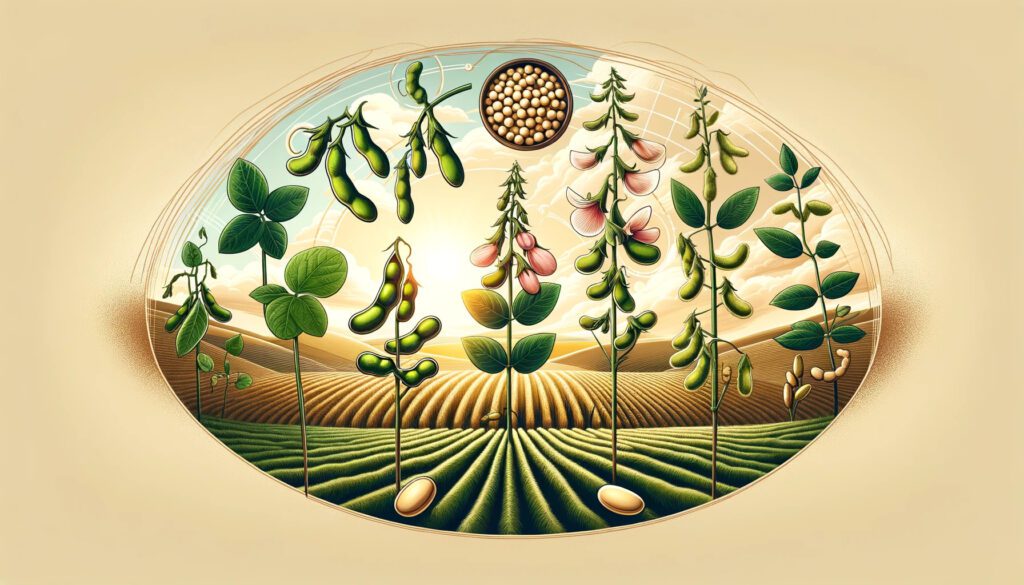
Soybean (Glycine max) is a vital crop in modern agriculture, especially in countries like the United States, Brazil, and Argentina. Understanding its phenological stages is essential for effective crop management. This article provides a detailed view of each phenological stage of soybean, from germination to maturity.
Phenological Stages of Soybean
Germination and Emergence (VE-V1)
The germination stage begins with the sowing of the seed and completes when the seedling emerges from the soil. During this phase, well-prepared soil and proper moisture and temperature conditions are crucial for successful germination.
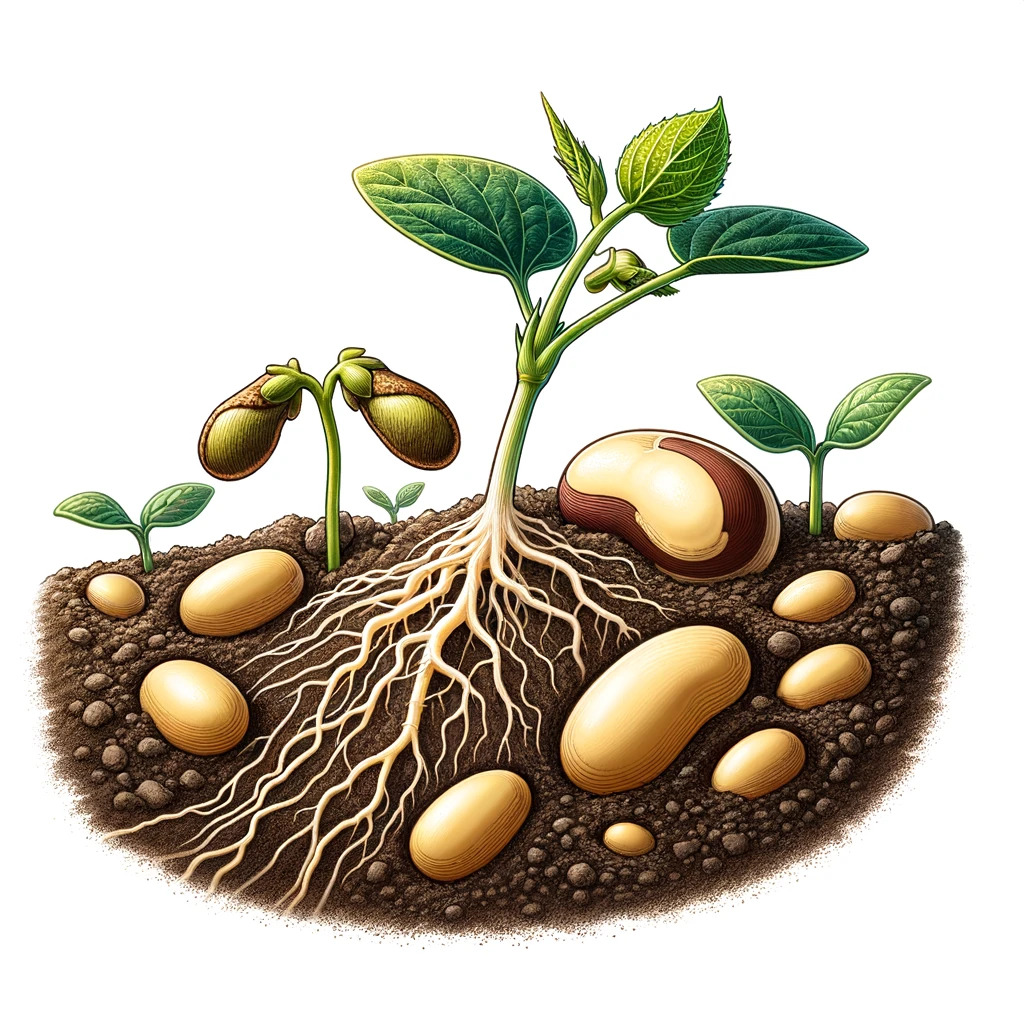
Vegetative Development (V2-V5)
After emergence, soybean enters a rapid vegetative growth phase. During this period, the plant develops its leaves, stems, and root system. Proper soil management and nutrition are fundamental for good plant development.
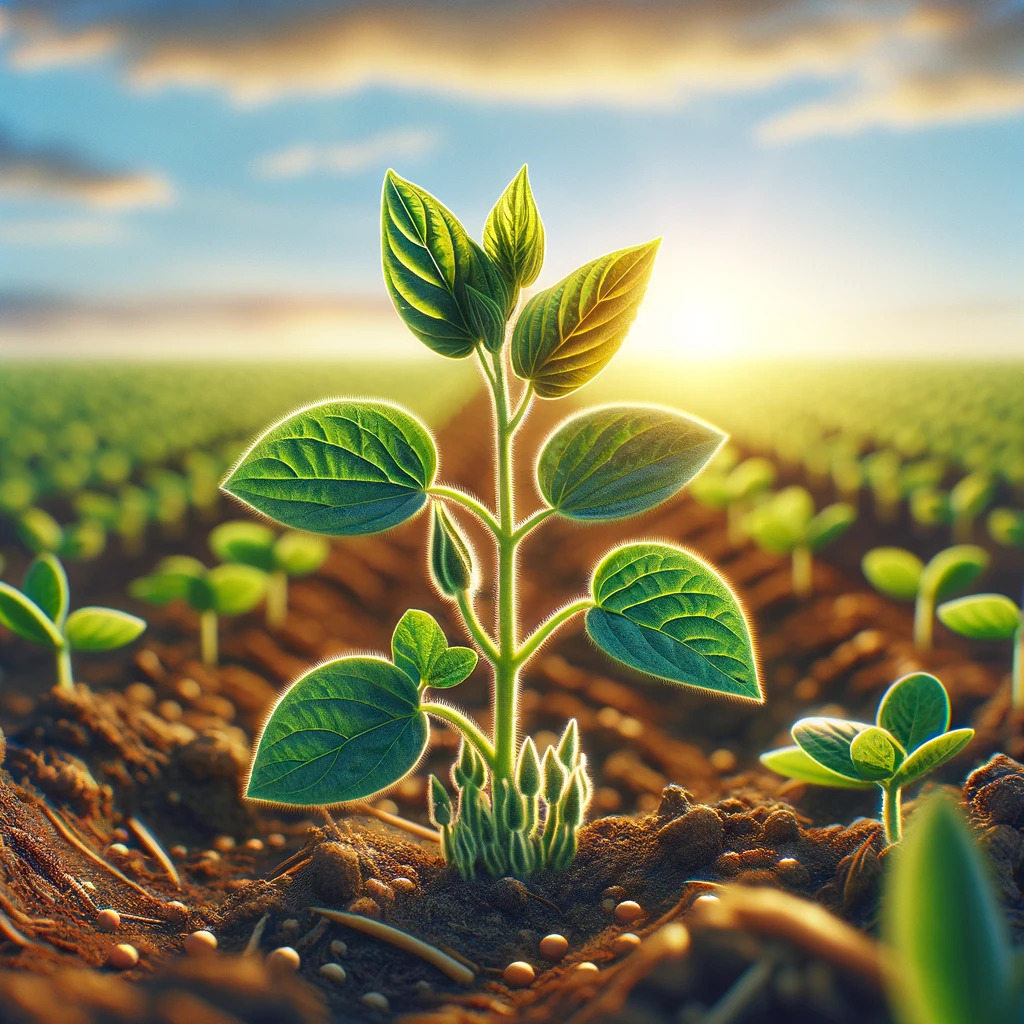
Beginning of Flowering (R1-R2)
Flowering marks the beginning of reproductive development. Flowers appear at the nodes of the plant. This stage is critical, as adverse environmental conditions can affect fertilization and pod formation.
Pod and Seed Development (R3-R5)
During this phase, pods develop and seeds begin to form and fill. Irrigation and protection against pests and diseases are essential to ensure a good yield.
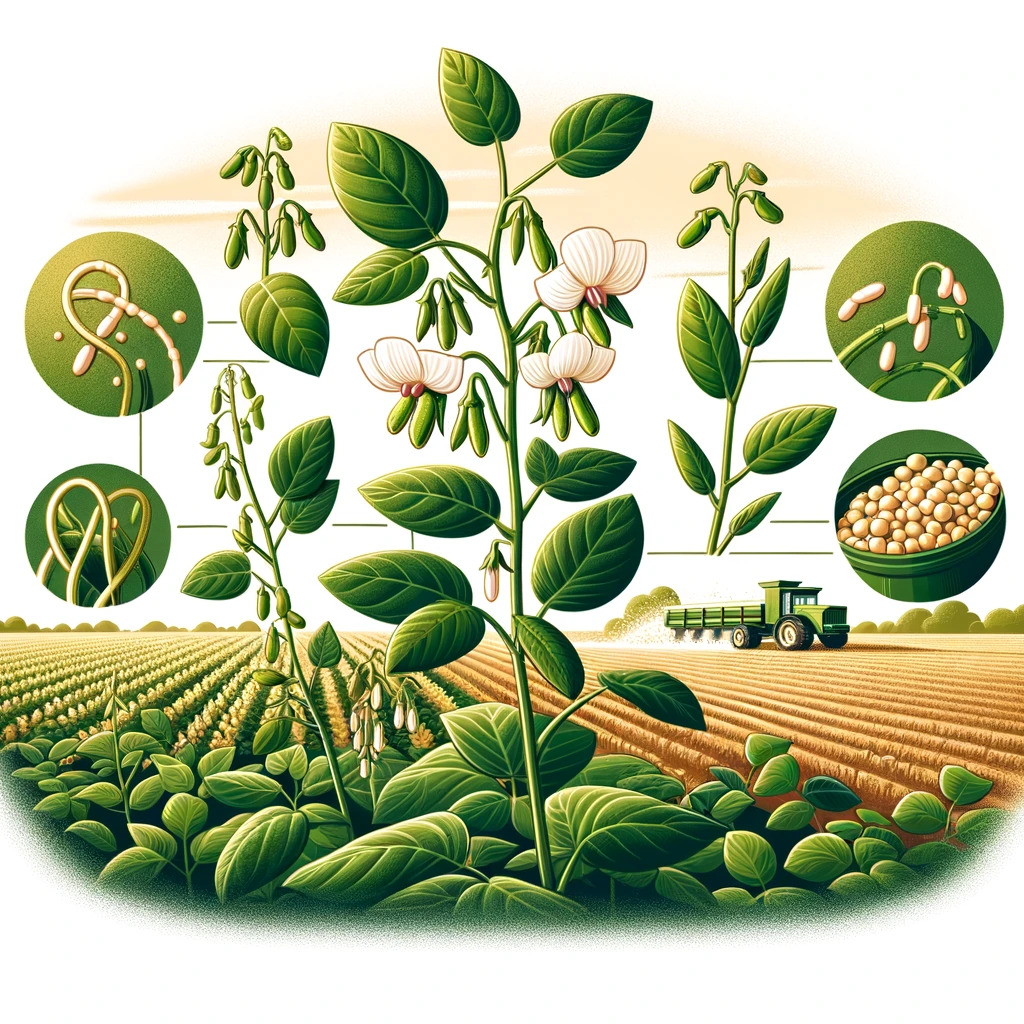
Maturity and Preparation for Harvest (R6-R8)
The final maturity stage is characterized by the completion of seed filling and preparation for harvest. Identifying the optimal harvest time is crucial to maximize the quality and yield of the crop.
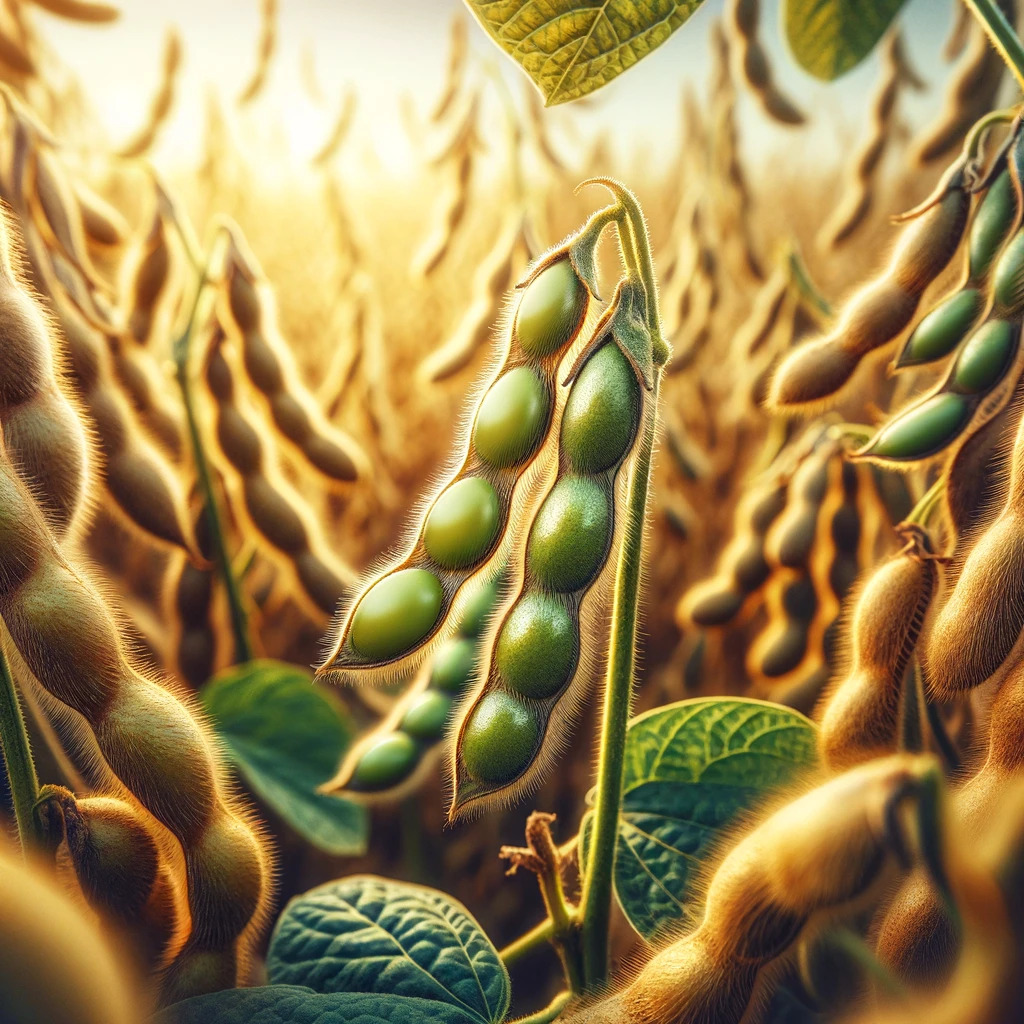
Conclusion
The phenological stages of soybean are fundamental in crop management. A deep understanding of each phase allows agronomists to make informed decisions on irrigation, fertilization, and pest control, thus optimizing the production and quality.
 AgronoBlog – Agriculture Blog
AgronoBlog – Agriculture Blog 